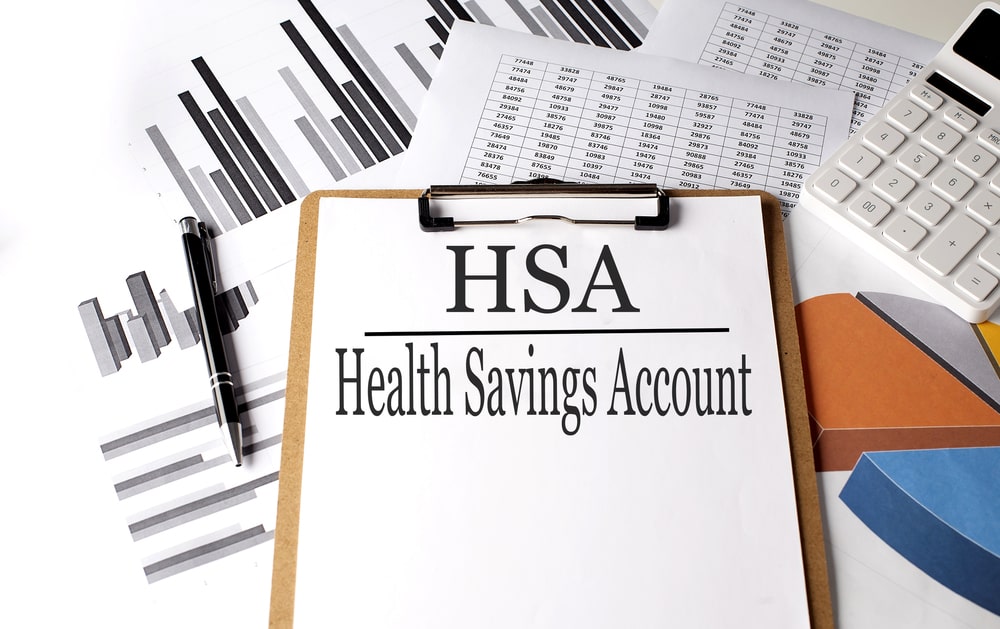Health Savings Accounts (HSAs): A Triple-Tax Advantage You Shouldn’t Overlook
Peacock & French CPAs
Aug 01, 2025

Let’s talk about something most people don’t get excited about — healthcare expenses. Now, let’s pair that with something else that rarely sparks joy: taxes. Sounds like a rough combo, right?
But here’s the twist — there’s one financial tool that can help you tackle both, and it does so quietly, efficiently, and with a trio of tax benefits that most savings vehicles can’t compete with. Enter: the Health Savings Account, or HSA.
If you’re not using one (or not using it strategically), you could be leaving thousands of tax-free dollars on the table — now and in retirement.
What Exactly Is an HSA?
A Health Savings Account is a special kind of savings account designed specifically for people with high-deductible health plans (HDHPs). It's not just a piggy bank for your next doctor’s visit — it’s a powerful tool that blends healthcare budgeting with tax strategy.
To qualify, you must be enrolled in an HDHP. That means your insurance plan has higher deductibles but lower premiums — and the IRS says you’re eligible to contribute to an HSA if you meet the criteria.
The kicker? The money in your HSA is yours. It rolls over year to year, and in many cases, it can even be invested and grow — just like a retirement account.
The Triple-Tax Advantage: Why HSAs Are So Powerful
Let’s break it down — because this is where things get interesting. An HSA offers not just one, but three distinct tax advantages:
1. Tax-Deductible Contributions
Every dollar you put into your HSA (up to the IRS limit) reduces your taxable income. It’s like giving yourself an immediate discount on your taxes — without doing anything fancy. Whether you contribute through payroll deductions or direct deposits, you’re getting a tax break.
2. Tax-Free Growth
Unlike regular savings accounts that earn taxable interest, the funds in an HSA grow tax-free. If you invest those funds (yes, you can invest them in mutual funds, ETFs, and more), your earnings aren’t taxed either. It’s a stealth wealth-building vehicle.
3. Tax-Free Withdrawals (for Qualified Medical Expenses)
And when it comes time to use your HSA? If you’re withdrawing funds for approved medical expenses — prescriptions, doctor visits, vision care, dental work, and more — that money comes out completely tax-free.
No taxes in, no taxes on growth, and no taxes when you take it out — if that’s not a triple threat, what is?
How Much Can You Contribute?
For 2025, the IRS limits are:
- $4,150 for individuals
- $8,300 for families
- An additional $1,000 if you’re age 55 or older (a nice little catch-up provision)
Employers can also contribute to your HSA — but those contributions count toward your annual limit. So make sure you factor that in if your employer is sweetening the deal.
It’s Not Just About Doctor Bills — Think Bigger
Most people think of HSAs as “spend-as-you-go” accounts. But the real power kicks in when you start treating your HSA like a long-term asset.
You can:
- Let the funds grow — invest them for 10, 20, even 30 years
- Use the account in retirement for tax-free healthcare expenses (which we all know aren’t getting cheaper)
- Reimburse yourself later for expenses you paid out of pocket — as long as you saved the receipts
And here’s a wildcard: once you hit age 65, you can withdraw HSA funds for any purpose without a penalty. You’ll pay income tax, yes — but at that point, it essentially becomes a backup retirement account.
What Not to Do with Your HSA
Even the smartest tools can be misused. Here are a few common missteps:
- Using funds for non-qualified expenses before age 65 — that triggers taxes and a 20% penalty. Ouch.
- Not keeping your receipts — you’ll need them for reimbursements and IRS proof.
- Confusing HSAs with FSAs — FSAs (Flexible Spending Accounts) are “use it or lose it.” HSAs are “yours forever.” Big difference.
- Letting the money sit idle — if your HSA offers investment options and you’re not using them, you’re missing out on long-term growth.
How HSAs Stack Up Against Other Accounts
If you're thinking, “This sounds a lot like a Roth IRA or a 401(k),” you’re not wrong — but it’s even better in some ways.
| Account Type | Contributions | Growth | Withdrawals |
|---|---|---|---|
| HSA | Tax-deductible | Tax-free | Tax-free (for medical expenses) |
| Traditional IRA | Tax-deductible | Tax-deferred | Taxed |
| Roth IRA | After-tax | Tax-free | Tax-free (after age 59½) |
| FSA | Tax-deductible | None | Must use in same year |
The HSA gives you the best of both worlds — deduction now, flexibility later.
Ready to Open One? Here’s How
Getting started is easier than you think:
- Enroll in an HDHP (if you’re not already)
- Open an HSA with a provider — banks, credit unions, and even investment platforms like Fidelity or Lively offer options
- Set up contributions — regular, automated contributions are your best bet
- Track your expenses — keep digital or physical records
- Decide if and when to invest your balance — don’t leave it sitting if it could be growing
Small Account, Big Impact
An HSA isn’t just a health expense account — it’s a long-term, triple-tax-advantaged financial strategy. Whether you’re managing rising medical costs or planning for retirement, this tool deserves a place in your financial plan.
Not sure if you’re eligible, or how to maximize your HSA for long-term tax savings?
Venice CPA can help you strategize contributions, optimize deductions, and integrate your HSA into your broader tax and retirement planning.
Let’s build your tax-smart future, one smart move at a time. Contact us today.